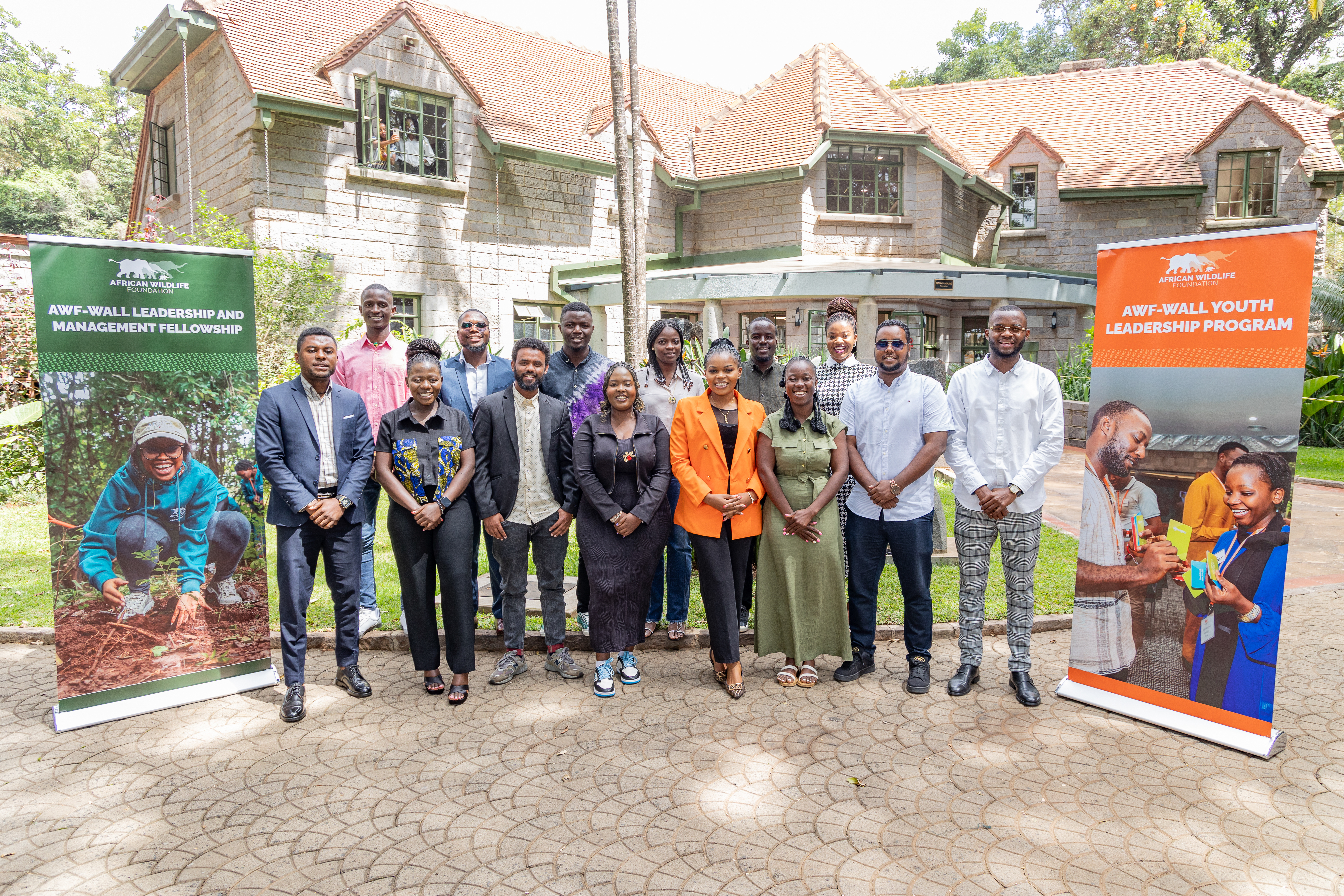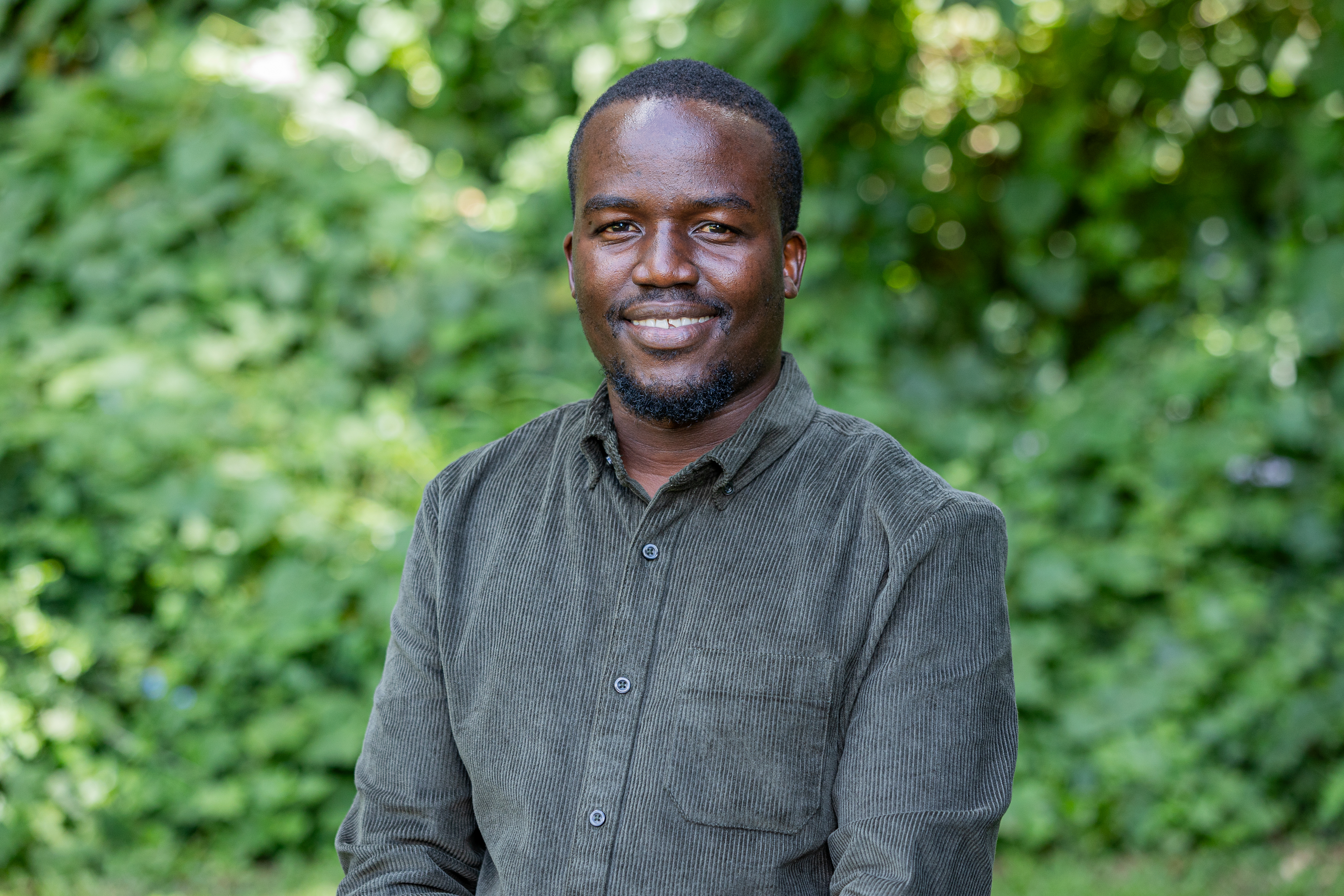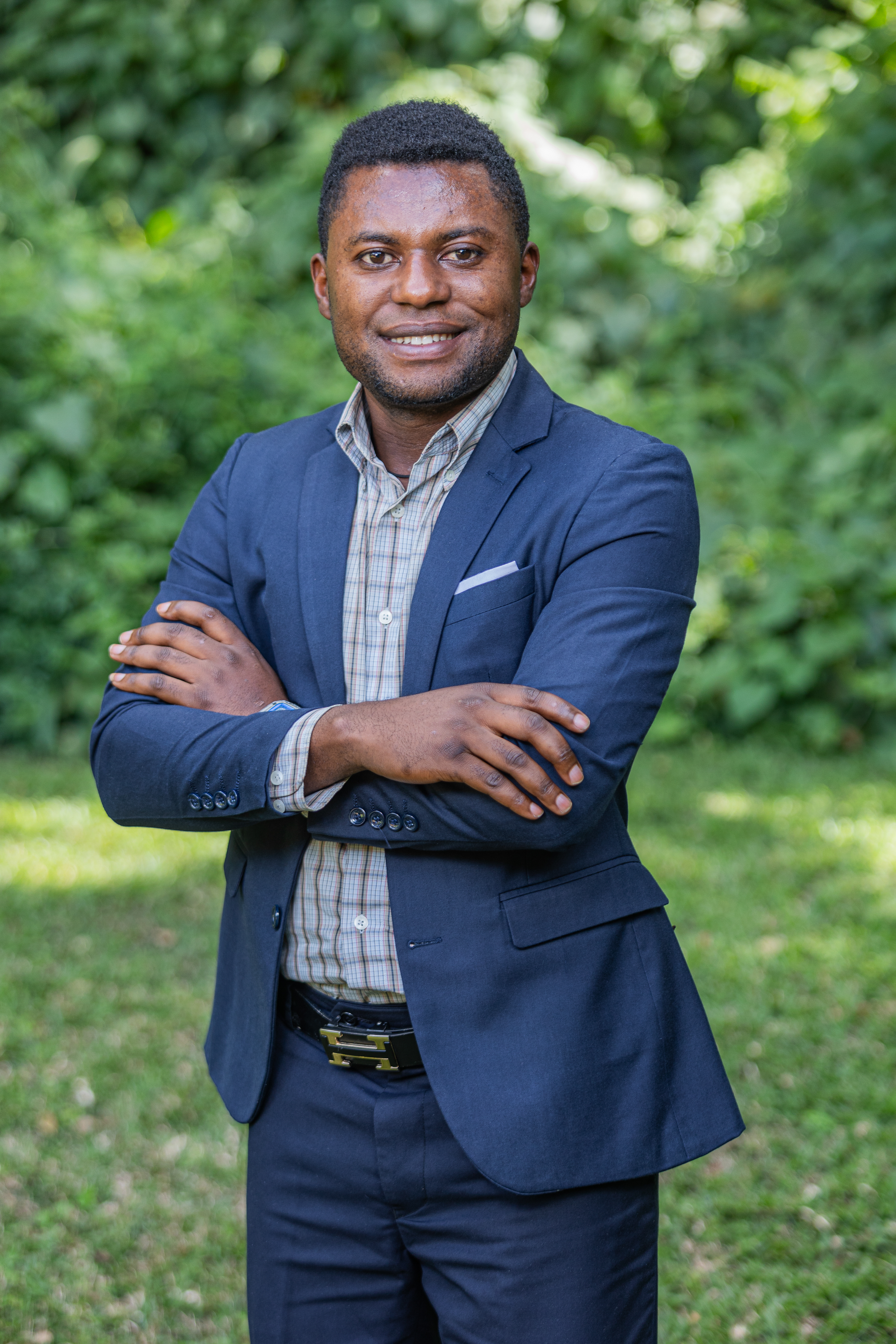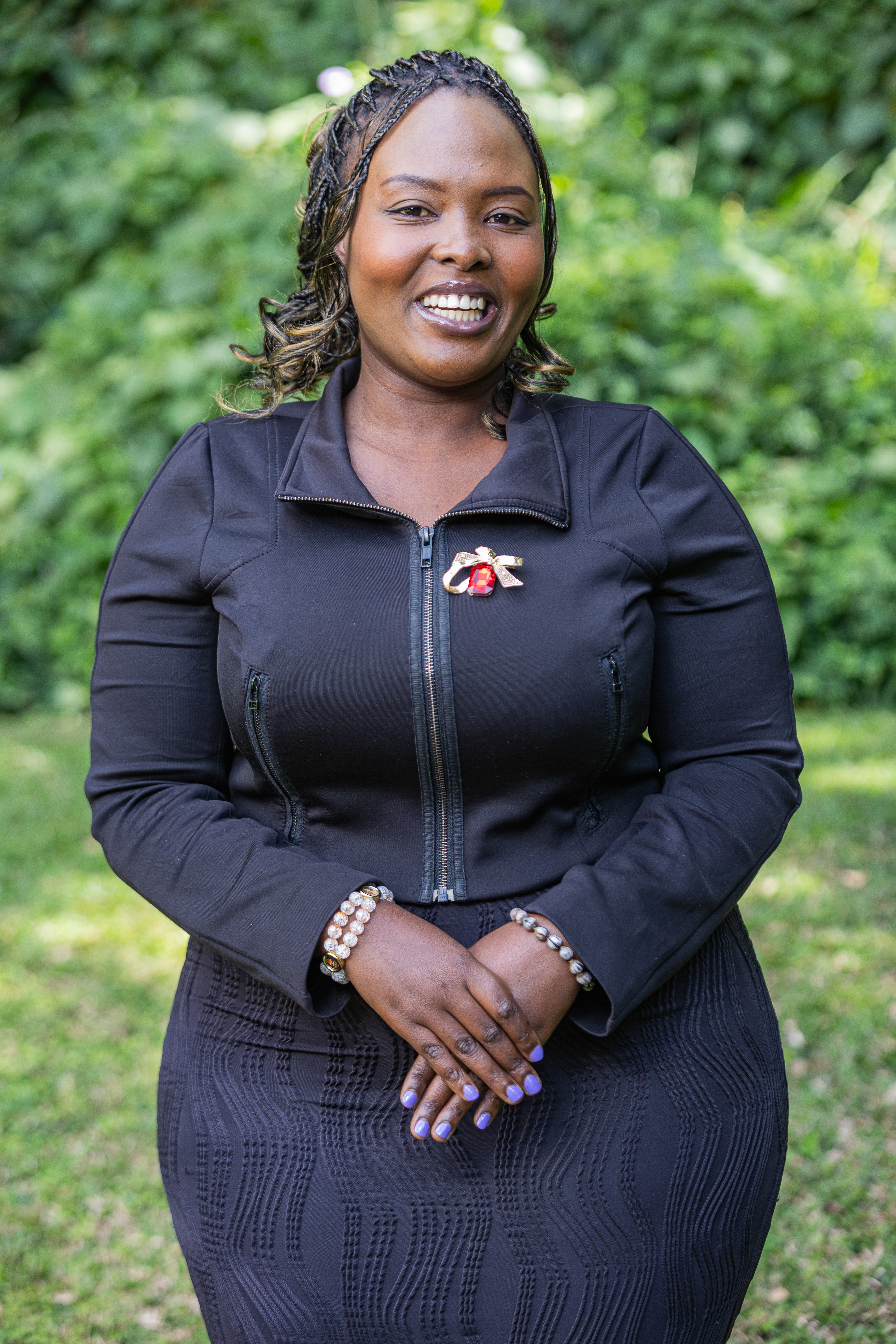Empowering Africa's Youth for a Sustainable Future.

A group photo of the AWF Wall Leadership and Management 2025 Cohort
Growing up in Muyabi Village, Zambia, Swithin Kashulwe witnessed the decline of fish and bird populations in his community's wetlands due to unsustainable practices. This early experience ignited his passion for biodiversity conservation, particularly for birds and wetlands.
"I saw the direct impact on our community's food and income security in a wetland-dependent area," Swithin says.

Swithin Kashulwe, AWF Wall Youth Leadership and Management Fellow from Zambia
Today, as a dedicated conservationist, Swithin tackles pressing threats like invasive species such as Mimosa pigra and Salvinia molesta, alongside human encroachment and drought. His approach combines direct invasive species control with community engagement, leveraging his fluency in Bemba and Nyanja to communicate complex conservation concepts effectively.
"Fluency in local languages ensures accurate messaging and builds trust," he explains, emphasizing the importance of community-based conservation.
As an AWF Fellow, Swithin is enhancing his leadership skills, gaining exposure to strategic thinking and diverse conservation techniques. His vision for a regional initiative focuses on a unified strategy for invasive species control, bringing together key organizations like Wetlands International and the International Crane Foundation.
Youth Leadership in Conservation.
By fostering collaboration and empowering local communities, Swithin exemplifies how youth leadership can drive systemic change in conservation.
Swithin is one of the Wall Leadership and Management Fellowship fellows, an initiative of the African Wildlife Foundation (AWF) whose objective is to cultivate a new generation of conservation leaders.
In itself, the program nurtures dynamic professionals dedicated to sustainable development, conservation, and community-driven change.
Swithin is not alone. As he charts his path in Zambia, Djai Pascal, a Fellow from Cameroon, is carving out his own space in youth mobilization. Djai founded Global Youth for Sustainable Development (GYSD) to empower young people to tackle environmental challenges.

Djai Pascal, AWF Wall Youth Leadership and Management Fellow from Cameroon
Inspired by the impacts of climate change on his village's agriculture and urban environmental issues, Djai created GYSD to engage youth in initiatives like tree planting and community outreach.
"I saw how climate change disrupted our community," he says, driven by the principle of "think global, act local." The AWF Fellowship has reinforced this ethos, providing resources to connect global perspectives with local actions.
Design thinking in environmental protection.
Despite challenges like securing funding and navigating Cameroon's Anglophone crisis, Djai remains committed to scaling GYSD's impact. The fellowship introduced him to design thinking, emphasizing the importance of consulting communities to understand their needs before implementing solutions.
Looking ahead, Djai envisions GYSD as a key player in shaping Africa's sustainable development post-2030, with plans for a youth summit focused on conservation, public policy, and advocacy for the Sustainable Development Goals. His work underscores the power of youth-led initiatives in driving environmental change.
Just like Swithin, Yvette Nishimwe discovered her passion for conservation through an initiative that put her in direct contact with her community, something she says transformed her from an aspiring doctor to a “tree doctor.”
As an Environmental Leadership and Capacity Building Program Manager at Nature Rwanda, Yvette designs initiatives to empower communities and youth, such as the Eco Clubs program and the "Walk for Climate Justice," now an annual event raising awareness in Rwanda.

Yvette Nishimwe, AWF Wall Youth Leadership and Management Fellow from Rwanda
Inspiring the next generation of environmentalists
Her most impactful strategy involves empowering children to present environmental issues to policymakers directly.
"When children speak for themselves, it has a profound impact," she says, highlighting how this approach amplifies grassroots voices in national policy.
The AWF Fellowship has been transformative for Yvette, providing a network of African leaders and introducing her to design thinking. This approach has shifted her focus to community-led implementation, ensuring initiatives address real needs. By connecting youth with hands-on conservation activities, Yvette nurtures the next generation of leaders who feel knowledgeable and connected to their efforts. Her work demonstrates how youth advocacy can bridge local concerns with global platforms.
The stories of Swithin, Djai, and Yvette illustrate the transformative potential of youth participation in conservation. Through the AWF Wall Leadership and Management Fellowship, they are honing their leadership skills, embracing innovative approaches like design thinking, and building networks that amplify their impact.
From Swithin's community-driven wetland conservation to Djai's youth mobilization and Yvette's policy advocacy, these young leaders are not only addressing immediate environmental challenges but also shaping a sustainable future for Africa. Their journeys remind us that empowering youth is not just an investment in conservation—it's a blueprint for lasting change.